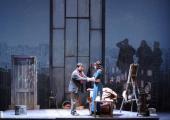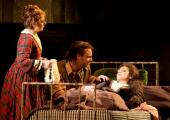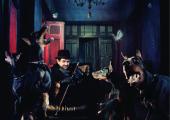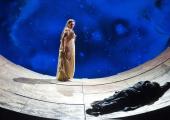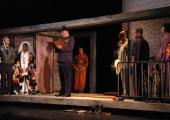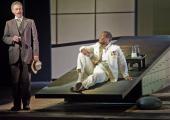La Bohème, Glyndebourne Festival Opera

An efficient but less than involving production of David McVicar's vision of love among the artists
It has romantic sweep but is held firm by zealous attention to detail and while it’s hugely expansive of gesture, it’s never generalised. I’m talking about Kirill Karabits’ conducting of La bohème at Glyndebourne. I wish I could say the same for the production.

